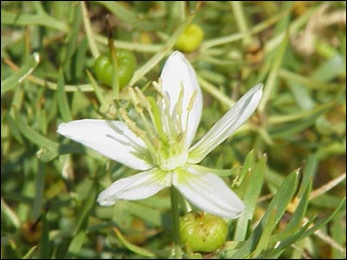
Overview
Harmala is a popular herb in both spiritual and medicinal practices. Historians believe that this herb was mentioned in ancient texts but its exact identity has been lost with time. It resembles to plant Ruta graveolens and hence is also known as rue.
What are the Common names of Harmala?
Esfand, African Rue, Syrian Rue, Harmel, Steppenraute, Wild Rue, Harmal Shrub, Ozallalk, and Aspand.
What is the Botanical name of Harmala?
Peganum Harmala.
How Harmala is Scientifically Classified?
- Kingdom – Plantae
- Phylum – Angiosperms
- Subphylum – Eudicots
- Class – Rosids
- Order – Sapindales
- Family – Nitrariaceae
- Genus – Peganum
- Species – P.Harmala
General Description of Haramal
This is a perennial plant that grows up to 0.8 m tall. Its roots reach up to 6 mm some rare conditions. Harmala flowers between June to August. Flowers of this plant are white in color and vary in size from 2.5-3.8 cm in diameter and appear on the end of each stalk. Flowers have ten pistils and five petals. The seed capsule is round and measures 1-1.5 cm in diameter. It has four chambers and consists of approximately 50 seeds. Seeds are brown or black in color and are triangular in shape.
Where is Harmala Distributed?
It grows mainly in the Eastern Mediterranean and grows throughout Middle East spreading to India, Manchuria, and Mongolia. It also grows in North Africa.
Where is Harmala Cultivated?
Harmala thrives in a desert climate. It grows very well in late springs in a sandy soil and requires an only a moderate amount of water. This plant needs a warm climate for cultivation.
Which parts of the Harmala is used for the Medicinal Purpose?
Seeds
What are the Medicinal uses of Harmala?
- It kills microorganisms or stuns their growth and hence prevents infections.
- Harmala reduces the vascular tension and helps to maintain blood pressure.
- This herb relieves symptoms of depression, anxiety disorder or social anxiety.
- It relieves pain and relaxes the body.
- Menstrual flow is stimulated or increased by the use of this herb.
- Harmala eliminates or kills the worms present in intestines or other parts of the body.
- This herb consists of Harmine which is a chemical substance used to treat mental diseases and inflammation of the brain.
- Stomach complaints can be treated with the help of Harmala.
- In fever, it is given in the form of decoction to lower the temperature and relieve other symptoms like body pains, weakness, and loss of appetite.
- Rheumatic and other joint pains can be relieved by this herb.
- Harmala has an antispasmodic effect which relieves colic.
- This herb relieves a toothache and cough.
- It acts as a blood purifier. Harmala purifies the blood and removes toxins from the body.
- Harmala increases milk production during lactation.
- Frequency and quantity of the urine can be increased by the use of this drug. It improves the functioning of kidneys.
- It treats constipation and improves digestion. Appetite is also increased by the use of this herb.
- Harmala is useful in eliminating materials which cause redness, itching and inflammatory condition of the skin.
- This herb helps to treat symptoms of hysteria, i.e. fainting, nervousness, irritability, and emotional outbursts.
- Gas and excessive flatulence can be relieved by the use of this herb.
- Harmala is known to treat neurotic diseases like epilepsy, palsy, dementia, and amnesia.
- It relieves a backache and pain due to sciatica.
- Harmala herb has cooling effects which help to relieve burning in body and acidity.
- This herb relieves insomnia and induces deep and sound sleep.
What can be the Side Effects of Harmala?
- In high doses it can cause serious side- effects so use only under the medical guidance.
- It can cause hypothermia, increased or decreased heart muscle contraction, increase pulse pressure as an immediate reaction.
- In long terms, it can cause a decreased level of follicular-stimulating hormone and testosterone, reduction in sperm count and third-degree heart block.
- If injected into blood vessels it can cause abnormal heart rhythms, low blood pressure and suspended breathing.
- Avoid taking Harmala herb during pregnancy as it stimulates menstruation which can lead to abortion. It may also induce labor.
- People with any kind of allergy should not take it as it may pose severe side-effects.
